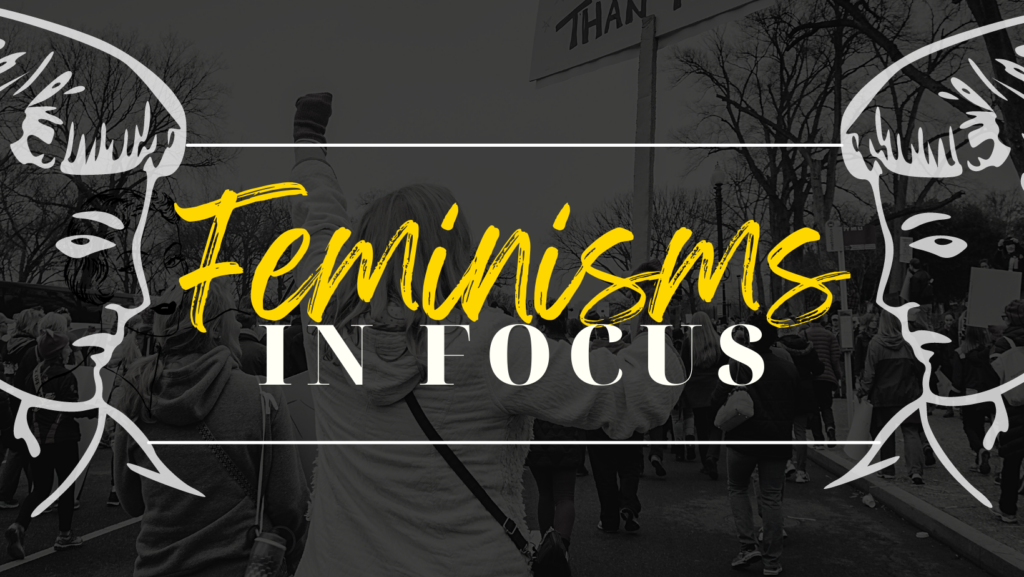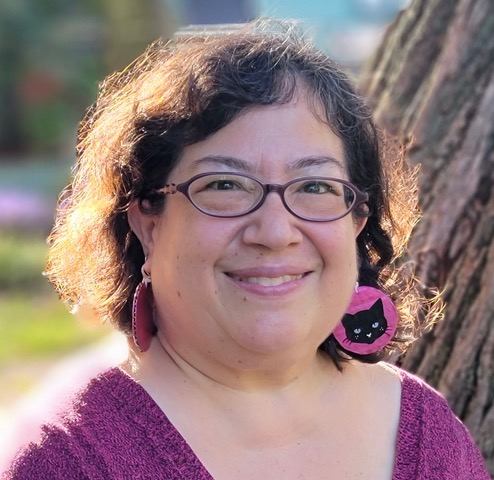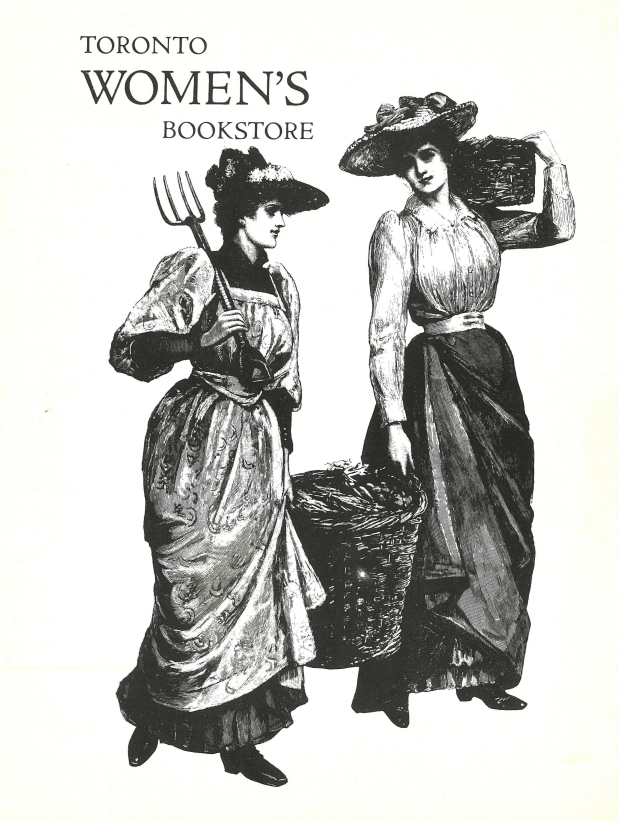Interview by Serena Aprile

Interview Questions
- It sounds like TWB began informally and almost by accident. What were the aims of the bookstore when it was established in the 1970s, in a moment of significant feminist political activism? How did these aims shift over the thirty-nine years of TWB's existence?
In 1973 the Toronto Women’s Bookstore was set up to fund a feminist collective called The Women’s Place and became a collectively-run business in 1974.
Over the years it remained a non-profit organization until it was sold in 2009 to Victoria Moreno, a former staff and collective member.
During the time the store was a non-profit organization, it had a volunteer board of directors, as well as different community advisory groups.
While the store was a collective for many years, the structure and relationship of the staff team to collective versus hierarchical leadership changed a lot over the years. It had an official manager starting from the early 1990s, who kept the store open during a time of financial challenges. By 1998 it shifted to a two-manager structure, which also changed as the needs of the store changed, until it was purchased and became a private business in 2009.
The Toronto Women’s Bookstore shifted quite a lot over the years, and reflected the many changes and challenges happening in the mostly white women’s movement in Canada in the 1970s and 1980s, as well in the white, male, straight, and middle class publishing environment in Canada during that time. TWB found itself frequently on the unpopular side, pushing for political and social changes before many institutions were ready.
- The bookstore has had many great achievements for instance, from the 1980s, TWB generated much needed exposure for books about and authored by women, developing a Women of Colour bibliography, providing an extensive resource section for lesbians and hosting book readings by luminaries like Margaret Atwood and more. Looking back now, 50 years later, what were some of TWB's most significant contributions?
Written in Colour was an annual conference for writers, focussing on writers of colour, and fostering writing skills, networking and connection to different communities. Written in Colour ran from approximately 2001 to 2004 and was organized by Anjula Gogia, the Store Manager. This was an incredible accomplishment in the context of how the stories of people of colour are usually heard in the Canadian context, often tokenized or exotified. Written in Colour was run by and for writers of colour and had an incredible impact on all participants.
Bringing Alice Walker to Toronto in 1998 to launch her latest novel “By The Light of My Father’s Smile” was a significant event in Toronto’s literary history. Sliding scale tickets sold out for the venue of the Danforth Music Hall (over 1000 seats) and brought a new era to the Toronto Women’s Bookstore: producing professional large-scale book launch events and author talks at low prices to ensure accessibility for all.
A key achievement is the increase of university book sales. Anjula Gogia had and still has an extremely keen business perspective. Her work and initiatives into increasing university course book sales in the fall became a significant financial foundation that allowed the store to support lesser known writers, hire more staff, and provide health benefits to staff, something not heard of in the bookselling industry at that time. The range of courses moved beyond Women and Gender Studies to a range of university courses, mostly at University of Toronto, but also at York University, George Brown College and other educational institutes.
- TWB’s had many challenges, notably burning down in a fire when the Morgenthaler Abortion Clinic, located above the shop, was targeted by arsonists in 1983. Can you talk about some of the challenges of operating a women’s bookstore and what led to TWB’s final closure?
All small, independent bookstores face similar challenges: low pay for staff and managers, and long hours. Because of how bookselling works in Canada, the prices of books are set by publishers. Profit margins, unlike in other retail sectors, are fixed, and are extremely low.
For this reason, retaining staff was always a big challenge. Because of flexible schedules, there were always part time and casual staff required to fill in shifts, as well as booktables, in which books were packed up and sold remotely at union conferences, other meetings and talks at universities and in the community, that the store would be requested to bring books to sell. Full-time staff were also needed to do all the tasks to keep the bookstore running: administrative and personnel tasks, book purchasing, shipping out mail orders, processing and receiving books as they came into the store, customer service, book displays, and of course, reading the books to provide personal service and recommendations to customers on the floor.
Starting in the mid-1990s TWB was clearly a feminist, anti-racist and queer- and trans-positive store and workplace. However, TWB was sometimes targeted by detractors. Before the internet and email, there would be occasional phone messages and faxes sent by disgruntled people who saw no reason for there to be a women’s bookstore at all.
The sad and unfortunate closure of TWB in 2012 was due to low sales, which had been heavily impacting all independent bookstores in the years prior through the rise of online bookstores, both American and one particular Canadian chain that entered the bookselling arena in the late 1990s with the goal to change how books are sold in Canada. They were, unfortunately, successful. Many independent bookstore closed in the early 2000s and continue to struggle. We greatly appreciate all that Victoria did to try to keep the doors open.
- Reflecting on the past 50 years, what do you hope TWB’s impact has been in the feminist movement, and especially for women? And what should we look forward to at the celebrations on October 10, 2023?
The literary and publishing world in Canada has changed a lot since 1973. The staff at TWB always fostered emerging and unpublished writers, holding events and workshops and courses to encourage writing as a craft and a practice. As the feminist movement changed over the decades, so did TWB, bringing intersectionality, disability, global politics and issues related to decolonization, US and Canadian imperialism, migration, and other issues that may not be thought of as feminist issues, but surely are.
The celebration planned for October 10th could not possibly capture all the communities that have been touched by TWB over the year. There are so many thoughts, ideas, individuals and discussions that TWB fostered and encouraged over the years. We have prepared an evening with a very wide breadth of voices, poetry, community members, music, and fun! The event is free, but registration is required. As of mid-September, there are no more advanced tickets available. We do have a waiting list and there will be rush tickets the night of the event. Check the Facebook event page for updates and you can get on the waiting list at the Eventbrite listing. The event will be live-streamed and live-closed captioned and can be viewed here starting at 6:30pm ET on Tuesday October 10th 2023.

educator,
and published writer.
She is the former manager and events coordinator at Toronto Women’s Bookstore and continues to have many unread books in
piles all over her home.
Read more about May Lui here.

Marie Prins; thank you to Rise Up!
Serena Aprile is a third year student at York University's Glendon Campus majoring in
sociology and minoring in political science. She is interested in the impact of education especially for
young women.
